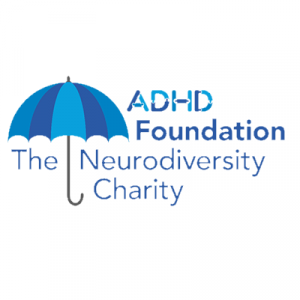
 On Tuesday 9th March 2021 we hosted the penultimate webinar from our ‘Inviting the Experts…’ series. This is a series of CPD sessions which we have set up recognising the incredible work that is going on in schools right now in particularly challenging circumstances and the need for school staff to have access to informative, practical advice from experts.
On Tuesday 9th March 2021 we hosted the penultimate webinar from our ‘Inviting the Experts…’ series. This is a series of CPD sessions which we have set up recognising the incredible work that is going on in schools right now in particularly challenging circumstances and the need for school staff to have access to informative, practical advice from experts.
The session was delivered by Colin Foley, Training Director of the ADHD Foundation, who gave an engaging and informative introduction to neurodiversity, in particular ADHD, and the practical support that schools can provide. Here are some overview notes from the session:
- According to NHS England data, 5% of the population has ADHD (based on a meta-analysis of research from across the globe).
- However only 2.9% of children are diagnosed with ADHD, suggesting that more that 2% of children are undiagnosed.
- Neurodiverse conditions affect boys and girls equally but girls and boys may present differently.
- There is a particular issue with girls/young women being under diagnosed with ADHD and neurodiversity, or being diagnosed late, possibly due to girls symptoms presenting in different ways, and/or girls being skilful at masking their symptoms by copying their peers.
- It is important for individuals with or living with neurodiversity to share their lived experience with others in education settings to inform strategies to support school communities.
- ADHD is a neurodevelopmental condition: a difference in the brain’s function which people are born with and live with throughout their lives.
- It is not a behavioural or mental health condition, although children with CYP often require behavioural or mental health support. People with ADHD are overrepresented in the criminal justice system.
- Neurodiverse CYP are particularly vulnerable cohort and need particular support.
- The current terminology is negative and Attention Deficit Hyperactivity Disorder could be replaced with Attention Dysregulation Hyperactivity Condition: CYP with ADHD are able to pay attention (with hyper-focus) but have issues with regulating that attention.
- CYP with ADHD will be:
- physically hyperactive – needing to move…
- mentally hyperactive – their brains jump quickly from topic to topic…
- Main features:
- Inattention
- Hyperactivity
- Impulsivity
- Other features:
- Executive function
- Working memory
- Emotional Dysregulation
- ADHD is not an excuse for unacceptable behaviour.
- ADHD often occurs with other conditions.
- Understand what ADHD is and isn’t: promote neurodiversity by talking about it and raising awareness.
- Take a strengths based approach, celebrating the positives: creativity, energy, impulsivity, lateral thinking, thinking on your feet, having a go, getting stuck in…
- Create strategies to capture attention, then sustain attention throughout the task / lesson.
- Include movement in your school. CYP with ADHD have to move in order to learn:
- Build in opportunities to move during the school day.
- Plan lessons to get CYP moving around classroom: using paper on walls as notepads, leaving information around the classroom for CYP to get up and retrieve.
- Chair push ups, stamping activities, marching – make movement part of the learning process.
- Give CYP opportunities to stand up to work.
- Motivating factors for ADHD are immediate interest, novelty, competition, so identify the CYP’s interests – capture their attention and build activities around that to build competencies.
- Teach CYP how to plan their work.
- Provide layered information giving information in bite size chunks and revisiting it in different ways:
- build engagement using games and short activities.
- introduce a variety of bite-sized activities to activate attentional systems.
- Consider the CYP’s position in the classroom to reduce distractions.
- Recognise a neurodiverse child may talk a great deal:
- As a coping strategy to get their thoughts out before they forget them.
- As a way to sustain attention.
- Utilise assistive technology available.
- Teach neurodiverse CYP skills to manage their emotions.
- Don’t assume that parents have had sufficient information or training to support their child. Assume they have not – signpost information to them and spend time with them to ensure they understand how ADHD impacts their child’s learning and how they can support them at home. Parent support groups can be very effective.
- Celebrate neurodiversity! Have a noticeboard with neurodiverse celebrities, raise awareness, start the conversation in your school…
- Visit the website: ADHD Foundation
- Note that the ADHD Foundation run the ADHD Friendly School Award with six pledges for schools to take up.
 We are very grateful to our supporters Towergate and The Education Broker, whose support enables us to provide these sessions for free, and who are committed to improving the health and wellbeing of young people and staff in the education sector. Please visit their websites to learn more about what they do or call on 01438 739626 to discuss your insurance, risk management and health and wellbeing requirements.
We are very grateful to our supporters Towergate and The Education Broker, whose support enables us to provide these sessions for free, and who are committed to improving the health and wellbeing of young people and staff in the education sector. Please visit their websites to learn more about what they do or call on 01438 739626 to discuss your insurance, risk management and health and wellbeing requirements.
Not a Hub Member? Find out about the benefits of membership.

 On Tuesday 9th March 2021 we hosted the penultimate webinar from our ‘Inviting the Experts…’ series. This is a series of CPD sessions which we have set up recognising the incredible work that is going on in schools right now in particularly challenging circumstances and the need for school staff to have access to informative, practical advice from experts.
On Tuesday 9th March 2021 we hosted the penultimate webinar from our ‘Inviting the Experts…’ series. This is a series of CPD sessions which we have set up recognising the incredible work that is going on in schools right now in particularly challenging circumstances and the need for school staff to have access to informative, practical advice from experts. We are very grateful to our supporters Towergate and The Education Broker, whose support enables us to provide these sessions for free, and who are committed to improving the health and wellbeing of young people and staff in the education sector. Please visit their websites to learn more about what they do or call on 01438 739626 to discuss your insurance, risk management and health and wellbeing requirements.
We are very grateful to our supporters Towergate and The Education Broker, whose support enables us to provide these sessions for free, and who are committed to improving the health and wellbeing of young people and staff in the education sector. Please visit their websites to learn more about what they do or call on 01438 739626 to discuss your insurance, risk management and health and wellbeing requirements.